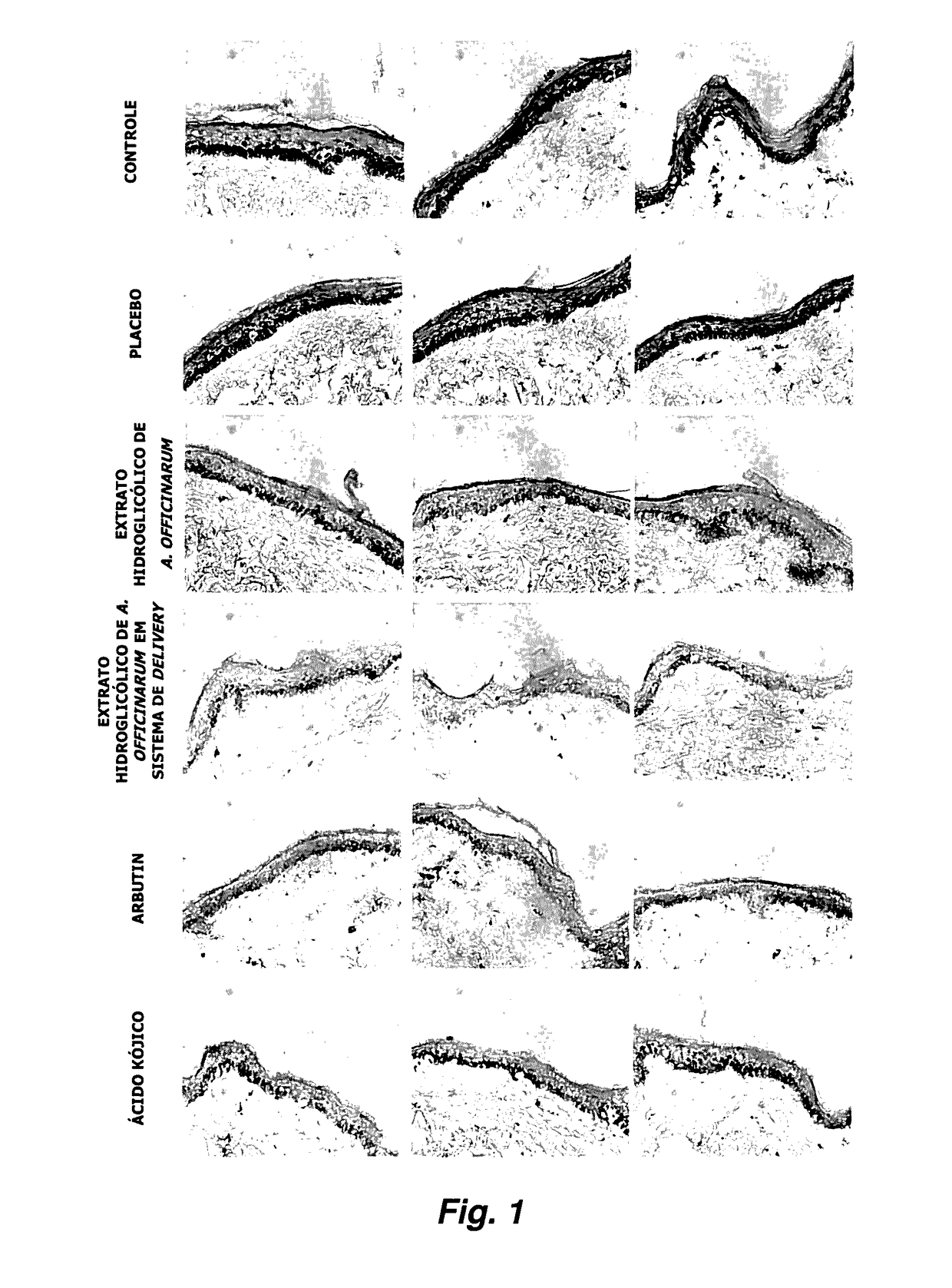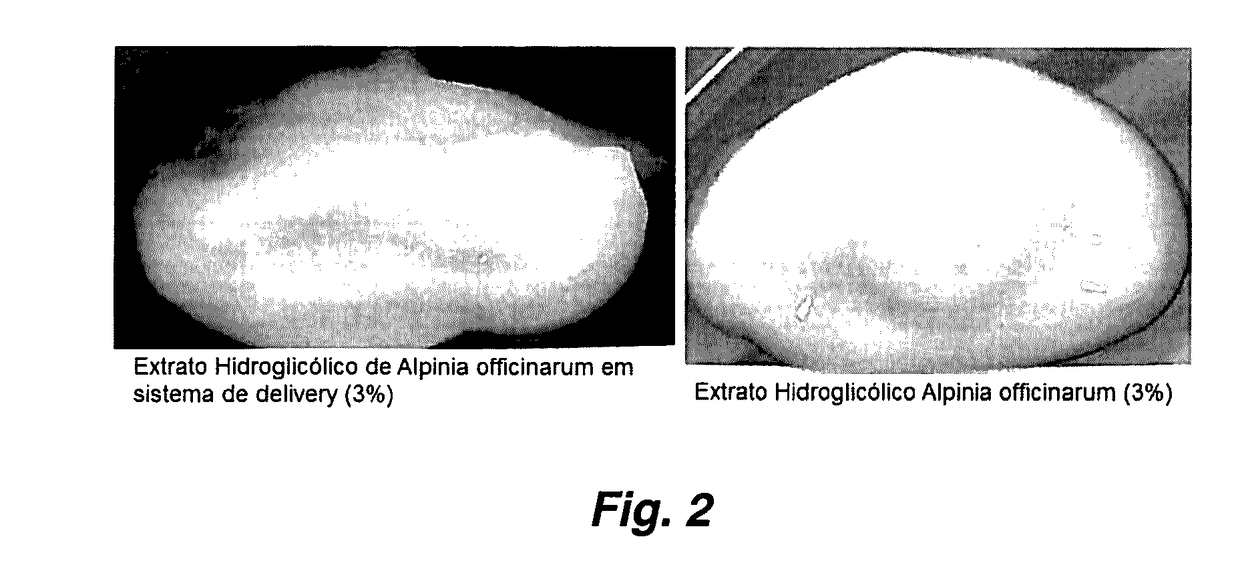Lightening active agent containing plant extracts, uses thereof and compositions containing the same
a technology of plant extracts and active agents, applied in the field of cosmetic compositions, can solve the problems of reducing productivity, social activities and self-esteem, few really provide satisfactory efficacy and safety, and affecting the appearance of skin firmness, so as to promote small changes in color, not developing any irritation on the skin, and high effective amounts
- Summary
- Abstract
- Description
- Claims
- Application Information
AI Technical Summary
Benefits of technology
Problems solved by technology
Method used
Image
Examples
example 1
Preparation of Extract of Alpina officinarum
[0071]1.0 kg of dried and ground rhizome of Alpinia officinarum Hance was added to 5.03 kg of distilled water, 3.79 kg of butyleneglycol, 0.10 kg of phenoxyethanol and 0.08 kg of potassium sorbate and kept under heating at 40-45° C. and shaking for five hours. Subsequently, the extract was filtered through filter paper under vacuum, using celite. pH of the extract was corrected to 5.0-6.20 with 50% citric acid solution.
example 2
Preparation of Extract of Physalis angulata
[0072]1.0 kg of ground leaves, stems and roots of Physalis angulata was added to 5.03 kg of distilled water, 3.79 kg of butyleneglycol, 0.10 kg of phenoxyethanol and 0.08 kg of potassium sorbate and kept under heating at 40-45° C. and shaking for five hours. Subsequently, the extract was filtered through filter paper under vacuum, using celite. pH of the extract was corrected to 5.0-6.20 with 50% citric acid solution.
example 3
Preparation of Extract of Bidens pilosa
[0073]1.0 kg of ground leaves, stems and roots of Bidens pilosa was added to 5.03 kg of distilled water, 3.79 kg of butyleneglycol, 0.10 kg of phenoxyethanol and 0.08 kg of potassium sorbate and kept under heating at 40-45° C. and shaking for five hours. Subsequently, the extract was filtered through filter paper under vacuum, using celite. pH of the extract was corrected to 5.0-6.20 with 50% citric acid solution.
PUM
| Property | Measurement | Unit |
|---|---|---|
| Fraction | aaaaa | aaaaa |
| Fraction | aaaaa | aaaaa |
| Fraction | aaaaa | aaaaa |
Abstract
Description
Claims
Application Information
 Login to View More
Login to View More - R&D
- Intellectual Property
- Life Sciences
- Materials
- Tech Scout
- Unparalleled Data Quality
- Higher Quality Content
- 60% Fewer Hallucinations
Browse by: Latest US Patents, China's latest patents, Technical Efficacy Thesaurus, Application Domain, Technology Topic, Popular Technical Reports.
© 2025 PatSnap. All rights reserved.Legal|Privacy policy|Modern Slavery Act Transparency Statement|Sitemap|About US| Contact US: help@patsnap.com


